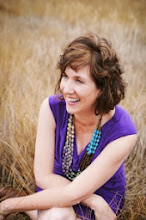News of Interest for Late-in-Life Moms, July 31, 2008
News of interest:
Mom's diabetes hikes risks of birth defects
New research suggests diabetic women who get pregnant are three to four times more likely to have a child with birth defects than other women.
The study lists nearly 40 types of birth defects -- including heart defects, missing kidneys and spine deformities -- found to be significantly more common in the infants of diabetic mothers than in those who weren’t diabetic or who were diagnosed with diabetes after they became pregnant.
Eat well, extend fertility, author suggests
Drastic changes in diet boost a woman's chances of giving birth into her 40s and 50s, according to Sarah Dobbyn, a nutritionist and author of The Fertility Diet.
Dobbyn recommends cutting out alcohol. smoking, articifical sweeteners and sugar and eating more organic foods. She encourages unlimited quantities of beans, organic herbs, spices and nuts. Fruit and vegetables should be eaten raw to help balance the body's hormones.
Labels: diabetes and birth defects, fertility diet
 In Others' Words
In Others' Words


 Follow Me on Twitter
Follow Me on Twitter



